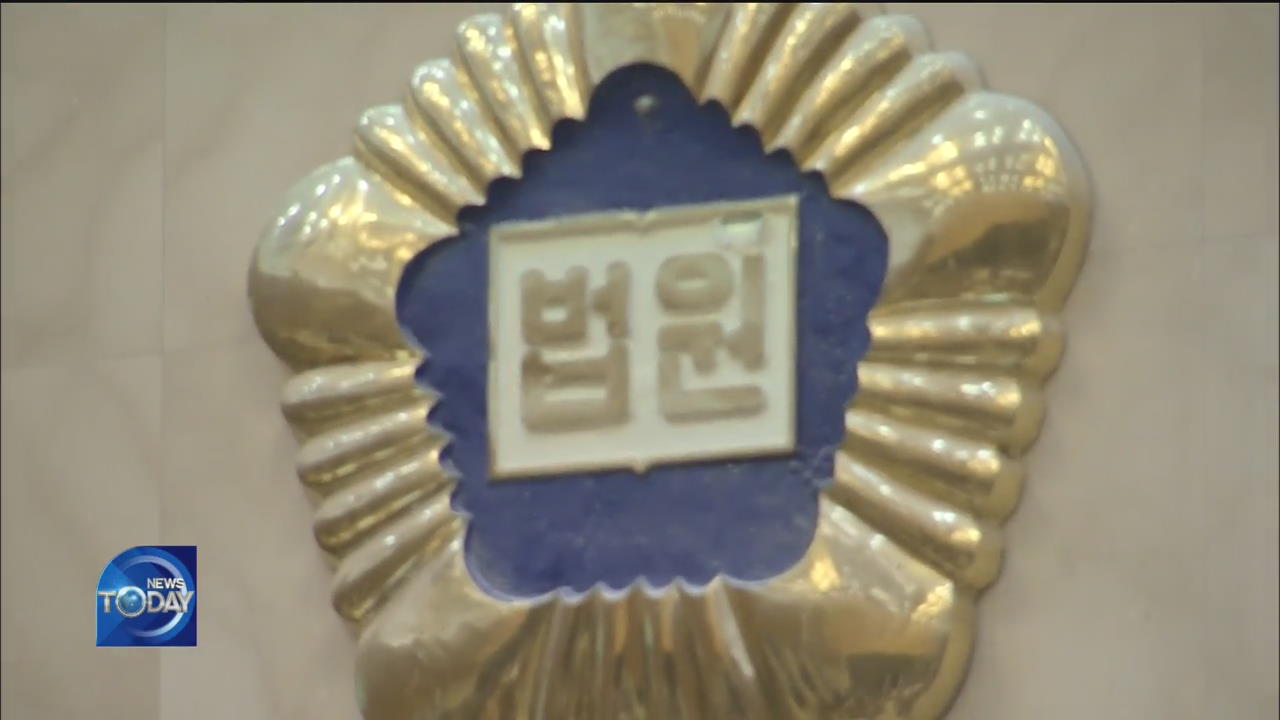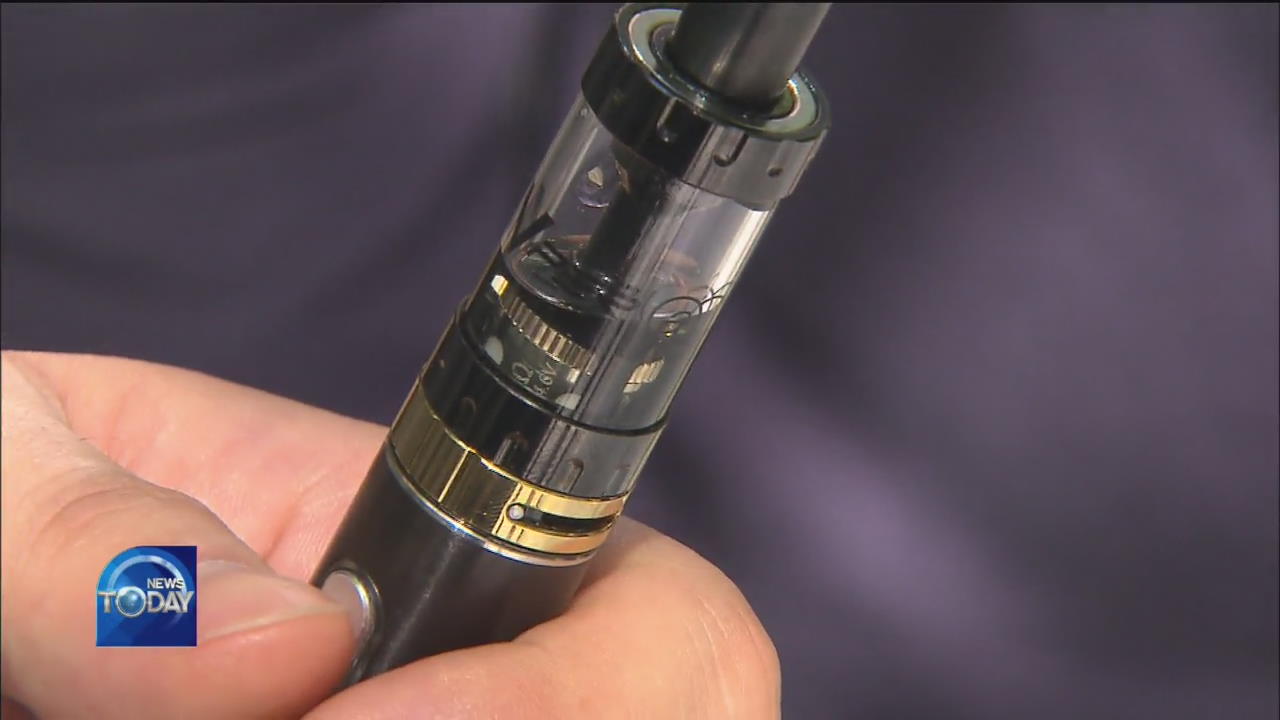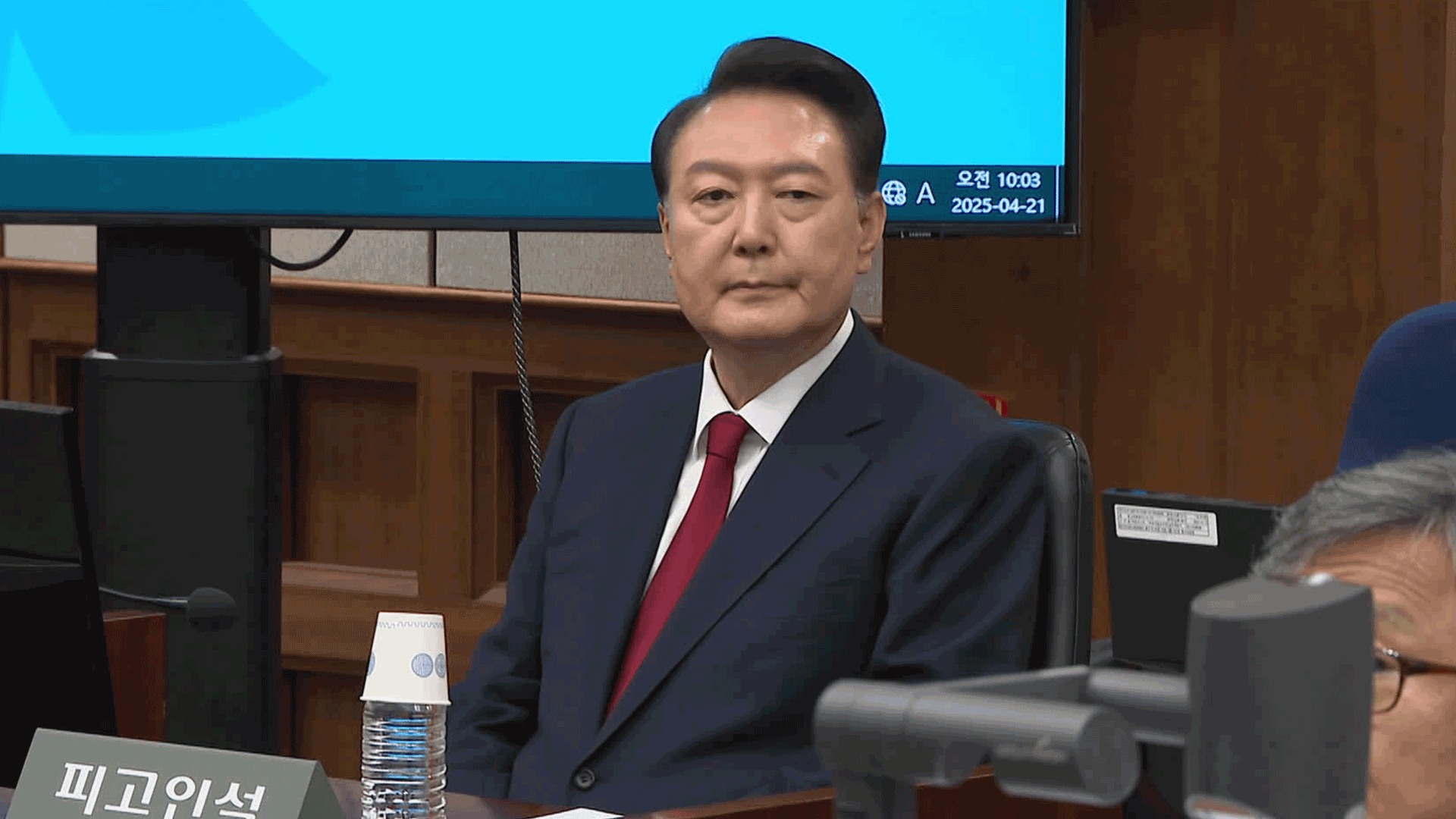COURT RULING ON IN VITRO FERTILIZATION
입력 2019.10.24 (15:08)
수정 2019.10.24 (16:46)
읽어주기 기능은 크롬기반의
브라우저에서만 사용하실 수 있습니다.
[Anchor Lead]
South Korea's Supreme Court ruled on Wednesday that a child born from the sperm of another man through in vitro fertilization must be viewed as a legitimate child as long as it was done at the husband's consent. This means that family relations must be protected even if the family members are not related by blood. Here's more.
[Pkg]
In 1993, a woman was impregnated with the sperm of a man other than her husband through artificial insemination. Four years later, she gave birth to her second child and registered him. However, in 2008 her husband learned that the second child was born out of wedlock. He later filed for divorce, saying that both of the couple's children were not his legitimate children. Under the Civil Law Act, children born during the marriage are presumed to be the husband's children as well. The contentious point of the lawsuit was whether non-biological children should be regarded as legitimate even when they are not related to their parents by blood. The courts of the first and second instance ruled that such children should be viewed as legitimate. In this couple's case, the first child was born through in vitro fertilization at the husband's consent. The second child is not the husband's biological child, but the child's birth and family registration were done in line with due process, as is usually done when adopting children. The Supreme Court also said that the previous verdicts were appropriate.
[Soundbite] KIM MYEONG-SOO(CHIEF JUSTICE, SUPREME COURT) : "The stipulation that seeks to grant legal stability to children from the moment of birth must apply to children born through artificial insemination as well."
One of the reasons behind the Supreme Court's ruling was the fact that although the husband learned belatedly that his second child was not related to him by blood, he did not file a lawsuit for more than two years. The court said that rejecting one's child simply because he or she is not related by blood runs counter to the constitutional principle of maintaining family peace.
[Soundbite] BAE SANG-WON(JUDICIAL RESEARCHER, SUPREME COURT) : "Family relations built without blood ties must be protected if they have lasted long enough and are socially mature and solid."
Critics say the court's ruling fails to take into account the latest advancements in medical technologies such as in vitro fertilization and DNA testing.
South Korea's Supreme Court ruled on Wednesday that a child born from the sperm of another man through in vitro fertilization must be viewed as a legitimate child as long as it was done at the husband's consent. This means that family relations must be protected even if the family members are not related by blood. Here's more.
[Pkg]
In 1993, a woman was impregnated with the sperm of a man other than her husband through artificial insemination. Four years later, she gave birth to her second child and registered him. However, in 2008 her husband learned that the second child was born out of wedlock. He later filed for divorce, saying that both of the couple's children were not his legitimate children. Under the Civil Law Act, children born during the marriage are presumed to be the husband's children as well. The contentious point of the lawsuit was whether non-biological children should be regarded as legitimate even when they are not related to their parents by blood. The courts of the first and second instance ruled that such children should be viewed as legitimate. In this couple's case, the first child was born through in vitro fertilization at the husband's consent. The second child is not the husband's biological child, but the child's birth and family registration were done in line with due process, as is usually done when adopting children. The Supreme Court also said that the previous verdicts were appropriate.
[Soundbite] KIM MYEONG-SOO(CHIEF JUSTICE, SUPREME COURT) : "The stipulation that seeks to grant legal stability to children from the moment of birth must apply to children born through artificial insemination as well."
One of the reasons behind the Supreme Court's ruling was the fact that although the husband learned belatedly that his second child was not related to him by blood, he did not file a lawsuit for more than two years. The court said that rejecting one's child simply because he or she is not related by blood runs counter to the constitutional principle of maintaining family peace.
[Soundbite] BAE SANG-WON(JUDICIAL RESEARCHER, SUPREME COURT) : "Family relations built without blood ties must be protected if they have lasted long enough and are socially mature and solid."
Critics say the court's ruling fails to take into account the latest advancements in medical technologies such as in vitro fertilization and DNA testing.
■ 제보하기
▷ 카카오톡 : 'KBS제보' 검색, 채널 추가
▷ 전화 : 02-781-1234, 4444
▷ 이메일 : kbs1234@kbs.co.kr
▷ 유튜브, 네이버, 카카오에서도 KBS뉴스를 구독해주세요!
- COURT RULING ON IN VITRO FERTILIZATION
-
- 입력 2019-10-24 15:02:46
- 수정2019-10-24 16:46:18

[Anchor Lead]
South Korea's Supreme Court ruled on Wednesday that a child born from the sperm of another man through in vitro fertilization must be viewed as a legitimate child as long as it was done at the husband's consent. This means that family relations must be protected even if the family members are not related by blood. Here's more.
[Pkg]
In 1993, a woman was impregnated with the sperm of a man other than her husband through artificial insemination. Four years later, she gave birth to her second child and registered him. However, in 2008 her husband learned that the second child was born out of wedlock. He later filed for divorce, saying that both of the couple's children were not his legitimate children. Under the Civil Law Act, children born during the marriage are presumed to be the husband's children as well. The contentious point of the lawsuit was whether non-biological children should be regarded as legitimate even when they are not related to their parents by blood. The courts of the first and second instance ruled that such children should be viewed as legitimate. In this couple's case, the first child was born through in vitro fertilization at the husband's consent. The second child is not the husband's biological child, but the child's birth and family registration were done in line with due process, as is usually done when adopting children. The Supreme Court also said that the previous verdicts were appropriate.
[Soundbite] KIM MYEONG-SOO(CHIEF JUSTICE, SUPREME COURT) : "The stipulation that seeks to grant legal stability to children from the moment of birth must apply to children born through artificial insemination as well."
One of the reasons behind the Supreme Court's ruling was the fact that although the husband learned belatedly that his second child was not related to him by blood, he did not file a lawsuit for more than two years. The court said that rejecting one's child simply because he or she is not related by blood runs counter to the constitutional principle of maintaining family peace.
[Soundbite] BAE SANG-WON(JUDICIAL RESEARCHER, SUPREME COURT) : "Family relations built without blood ties must be protected if they have lasted long enough and are socially mature and solid."
Critics say the court's ruling fails to take into account the latest advancements in medical technologies such as in vitro fertilization and DNA testing.
South Korea's Supreme Court ruled on Wednesday that a child born from the sperm of another man through in vitro fertilization must be viewed as a legitimate child as long as it was done at the husband's consent. This means that family relations must be protected even if the family members are not related by blood. Here's more.
[Pkg]
In 1993, a woman was impregnated with the sperm of a man other than her husband through artificial insemination. Four years later, she gave birth to her second child and registered him. However, in 2008 her husband learned that the second child was born out of wedlock. He later filed for divorce, saying that both of the couple's children were not his legitimate children. Under the Civil Law Act, children born during the marriage are presumed to be the husband's children as well. The contentious point of the lawsuit was whether non-biological children should be regarded as legitimate even when they are not related to their parents by blood. The courts of the first and second instance ruled that such children should be viewed as legitimate. In this couple's case, the first child was born through in vitro fertilization at the husband's consent. The second child is not the husband's biological child, but the child's birth and family registration were done in line with due process, as is usually done when adopting children. The Supreme Court also said that the previous verdicts were appropriate.
[Soundbite] KIM MYEONG-SOO(CHIEF JUSTICE, SUPREME COURT) : "The stipulation that seeks to grant legal stability to children from the moment of birth must apply to children born through artificial insemination as well."
One of the reasons behind the Supreme Court's ruling was the fact that although the husband learned belatedly that his second child was not related to him by blood, he did not file a lawsuit for more than two years. The court said that rejecting one's child simply because he or she is not related by blood runs counter to the constitutional principle of maintaining family peace.
[Soundbite] BAE SANG-WON(JUDICIAL RESEARCHER, SUPREME COURT) : "Family relations built without blood ties must be protected if they have lasted long enough and are socially mature and solid."
Critics say the court's ruling fails to take into account the latest advancements in medical technologies such as in vitro fertilization and DNA testing.
이 기사가 좋으셨다면
-
좋아요
0
-
응원해요
0
-
후속 원해요
0

















이 기사에 대한 의견을 남겨주세요.